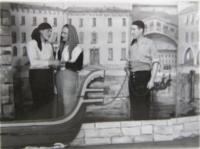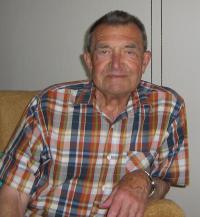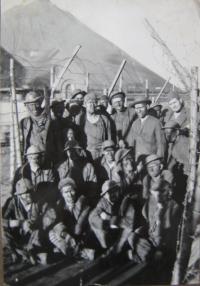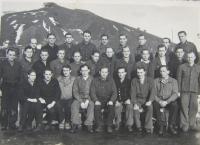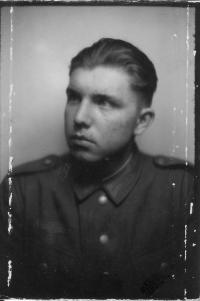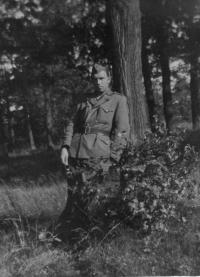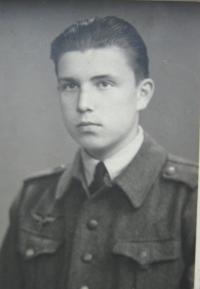I always say that I am not Czech nor German but rather a „Hlučíner“.

Stáhnout obrázek
Hugo Reiský was born in 1927 in Hlučín. His native region became a part of Czechoslovakia only after the Treaty of Versailles and was inhabited mostly by the so called Moravecs. They spoke mostly Czech, German or the so called Moravian language. After the Munich Agreement, the whole area was annexed by the Third Reich and its inhabitants were automatically obliged to join the German army. Thus - during grammar school already - Hugo Reiský had to join Heimat Flak units where he studied anti-aircraft defense. After finishing his studies, being seventeen years old, he was at first assigned to RAD and in December 1944 to Wehrmacht. Along with his unit, he was sent to Opole and consequently to Niederfin. Shortly, they had to retreat to Berlin where they experienced the allies‘ shelling. From Berlin they were transferred to the west front near Nienburg where they let themselves be taken captive by the English. Hugo Reiský then went through prison camps in Sulingen, Weeze and Vilvoorde. In Vilvoorde he worked at a mine for nearly two years before he was eventually released in June 1947. As a former Wehrmacht soldier, he had great difficulties finding a job after returning to Czechoslovakia. He succeeded at last but in October 1948 he had to join the military service. As an unreliable, he was assined to a technical battalion (PTP) and sent to a mine in Horní Suchá. After finishing his service he went to work in construction industry and worked his way up to construction manager. The top of his labour effort was managing the construction of Praděd broadcaster. Nowadays he is retired and still lives in Hlučín.
